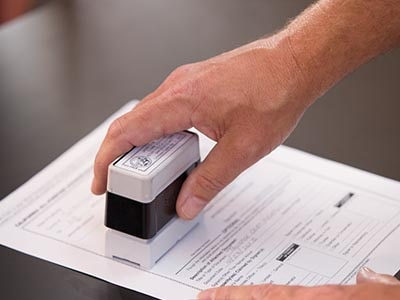Understanding Apostille: Simplifying International Paper Legalization
Understanding Apostille: Simplifying International Paper Legalization
Blog Article
Debunking Notarial Work: Streamlining the Role and Value of Notaries
Their duty, usually shrouded in enigma for several, lugs substantial weight in making certain the legitimacy and stability of vital records. By unwinding the complexities surrounding notarial techniques and losing light on the value of their acts, a clearer understanding emerges of the essential duty notaries play in maintaining the textile of contractual and legal agreements.
The Background of Notarial Work
The history of notarial job dates back to ancient human beings, where scribes played an important duty in tape-recording vital information and validating records. This led to the development of notaries, individuals selected by the state to act as neutral witnesses in legal matters.
Throughout the Center Ages, notaries acquired importance in Europe, with their features expanding to include drafting legal files, licensing trademarks, and maintaining records. The increase of global trade even more emphasized the value of notarial work in confirming contracts and contracts across borders.
In the contemporary era, notaries remain to play a vital function in lawful and organization transactions by validating identifications, confirming the authenticity of records, and avoiding fraudulence. Their duty in certifying the legitimacy of agreements adds a layer of safety and security and depend on to the ever-evolving landscape of business and legislation.

Responsibilities and Obligations of Notaries
The historic development of notarial job from ancient civilizations to the modern era has formed the distinctive responsibilities and responsibilities that notaries promote in lawful and company deals today. Notaries play an essential duty in validating the authenticity of files and the identity of notaries. One of their primary duties is to witness the finalizing of important papers, such as contracts, wills, and actions, to make certain that all events are getting in right into arrangements knowingly and voluntarily. Notaries also verify that notaries are of audio mind and not under duress or browbeating.
Additionally, notaries are charged with carrying out vows and affirmations, which are critical in lawful proceedings and the implementation of testimonies. They certify copies of original papers, giving assurance to organizations that the duplicates are true replicas of the originals. Notaries should keep precise records of all transactions they manage to ensure openness and accountability. Generally, the duties and obligations of notaries are necessary in protecting the stability and validity of numerous papers and purchases.
Notarial Certificates and Signatures
Exemplifying thorough focus to information, notarial certificates and signatures work as crucial components in confirming the credibility of legal documents. Notarial certifications commonly have critical info such as my link the date of notarization, the names of the signatures, a description of the document, and the notary's main seal. These certifications offer a clear record of the notarial act, making certain that the paper can be quickly identified and mapped back to the notary who managed the process.
Trademarks play an next page essential function in notarial job, as they indicate the agreement and authorization of the events involved. Notaries thoroughly witness the signing of records to verify the identification of the notaries and validate that they are signing of their very own totally free will. By affixing their official seal and signature to the record, notaries accredit that the essential procedures have actually been followed which the document is legitimate and enforceable.
Basically, notarial certifications and signatures are the trademark of credibility in legal purchases, providing guarantee to all parties included that the records are genuine and binding.
Relevance of Notarial Acts

Notarization Refine Described
Clarifying the registration procedure gives quality on the essential steps involved in validating lawful records. The registration procedure usually begins with the More Help private providing the file to a notary public. The notary then verifies the signer's identification via appropriate identification methods. Once the identity is confirmed, the notary guarantees that the specific authorizing the document does so voluntarily and without any type of browbeating.

Conclusion
Notarial certificates commonly contain important info such as the day of registration, the names of the signatories, a description of the file, and the notary's official seal. These certifications give a clear record of the notarial act, ensuring that the file can be quickly determined and traced back to the notary who managed the process.
By attaching their main seal and signature to the paper, notaries certify that the required procedures have been complied with and that the paper is enforceable and legitimate.
By confirming the identification of the notaries, verifying their desire to get in right into the contract, and accrediting the date and location of the signing, notaries play a vital function in supporting the credibility of legal documents.After the document is authorized, the notary will certainly attach their official seal or stamp onto the file.
Report this page